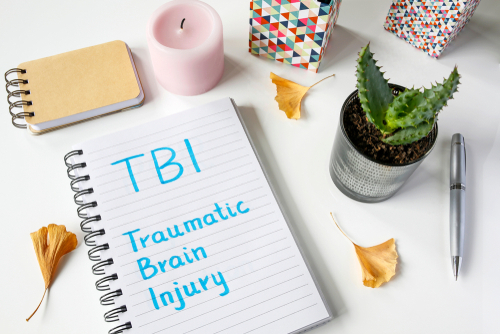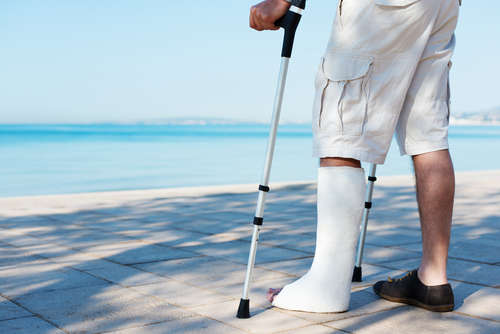The impact of a traumatic brain injury (TBI) on you and your entire family can last for your entire life. Based on the severity of the injury, you may experience ongoing financial stress due to required medical treatments and be unable to return to work.
If someone else’s negligence caused your TBI, you could file a personal injury claim with the help of an accident attorney. This lawsuit will ensure the at-fault party is held liable for your injuries and help you recover costs related to the injury you sustained.
The total amount of compensation you will receive for your brain injury is unique for every case and determined by certain factors. To ensure you receive a fair amount of compensation when filing a personal injury claim for a TBI, you should work with our experienced personal injury attorneys at Zimmet & Zimmet. We will review the facts of your case and use that information to determine the amount of compensation you deserve.
Learn more about traumatic brain injury claims and what factors impact your settlement here.
Factors That Impact Your Brain Damage Settlement
The compensation you receive for a brain injury is based on a few factors, including the severity of the injury, how it impacts your life, and the ongoing medical care you require.
The factors that will be considered include:
The Severity of the Brain Injury
Personal injury claims are unique. No two people will have the same injury, nor will it affect them in the same way. Because of this, part of the personal injury claim process is determining the severity of the injury you experienced.
TBIs can cause an array of symptoms depending on how serious it is. Some of these include:
- Reasoning and memory problems
- Emotional changes like anxiety, depression, mood swings, and changes in personality
- Inability to communicate
- Loss of smell, taste, and touch sensations
The medical staff treating your injuries often use various tests, such as MRIs, to evaluate if you have a TBI and how severe it is. The evaluations provided by your doctors will support your claim for compensation and detail your brain injury’s physical and emotional impact.
Hospital Stays
More serious TBIs can result in extensive treatment and time in the hospital. This can result in significant bills. If you are diagnosed with a severe brain injury, you may need surgery to remove the blood clots in the brain and to alleviate pressure in your skull. You may be able to recover compensation for the cost of these treatments and your time in the hospital.
Medications and Rehabilitation
Sometimes, recovery from a TBI includes prescription medications, rehabilitative services, and physical therapy. Assistive devices and nursing care may also be required, and other things you can receive compensation for in your personal injury settlement. You can speak to your personal injury lawyer about what you can and can’t claim.
Ongoing Cognitive and Emotional Counseling
Brain injuries may also exacerbate cases of post-traumatic stress disorder, depression, and anxiety. Counseling may help you acquire the necessary coping skills to improve your emotional well-being and improve your relationships.
Types of Damages You Can Receive After a Brain Injury
Depending on the circumstances, you can recover economic and non-economic damages for any personal injury case. Your attorney can request that all costs related to the injury be included and estimate the amount you can recover.
Economic Damages for TBIs
The economic damages you may be able to receive as part of your settlement after a TBI include:
- Current and future injury-related medical costs: This includes psychological counseling, rehabilitative treatment, and physical therapy.
- Lost wages: It’s estimated that around 60% of TBI victims won’t be able to go back to work, while another 35% will only be able to work part-time.
- Loss of earning capacity: This is an important consideration for brain injury victims. A TBI may limit your ability to earn money like you did before it happened. Your attorney can review your employment records and history to provide you with an accurate estimate of the earnings you will lose because of it.
Non-Economic Damages for TBIs
Determining an amount of non-economic damages after a TBI is more challenging since there is no set amount. The value of these depends on the facts of your case. Some types of non-economic damages you may qualify for include:
- Pain and suffering: It’s possible that you can sue for pain and suffering compensation if you experience a significant impairment of bodily functions. Your injury lawyer can use testimonies from healthcare providers, medication receipts, and medical records to show the full extent of your pain and suffering.
- Loss of enjoyment of life: This describes how the injury has impacted your ability to enjoy hobbies and activities you did in the past. If you cannot participate in activities you once did before the injury occurred, you may be able to recover compensation.
- Emotional distress: When you experience emotional distress because of an injury, you can sue for damages.
Contact Our Legal Team for Help with Your Personal Injury Claim
Traumatic brain injuries are some of the most serious, life-changing injuries you can experience in an accident. Due to their severity, it’s important to work with an experienced and reputable personal injury attorney from Zimmet & Zimmet to receive the compensation you deserve.
We have worked with thousands of clients and helped them receive personal injury claim payouts that cover all injury-related costs. We will use our experience and resources to help you achieve the same outcome.
The first step is to contact our office to schedule a free initial consultation. During this meeting, we can learn about the facts of your case and start collecting evidence to ensure you receive a fair settlement offer.
Read More
Common Motorcycle Accidents in Daytona Beach and How to Stay Safe
Can I Sue for My Injury? Understanding Negligence in a Personal Injury Case











